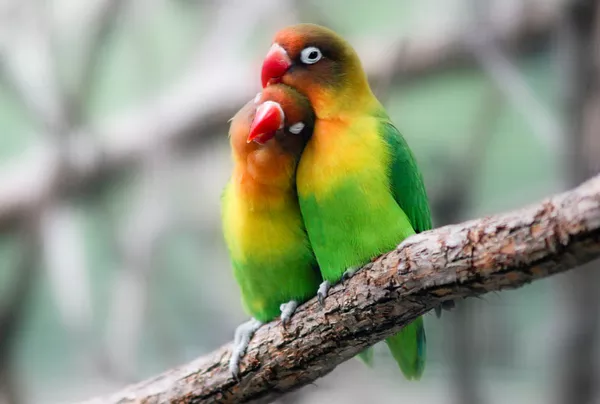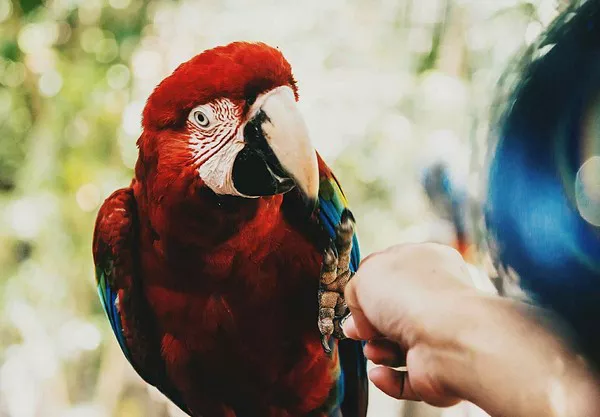Tortoiseshell cats, often affectionately referred to as “torties,” are a beloved breed known for their unique and beautiful coat patterns. With their intricate mixture of colors—ranging from deep oranges to browns, blacks, and even some hints of cream and gold—torties are visually stunning creatures. However, it’s not just their physical appearance that captures the attention of cat lovers. Tortie cats are also known for their distinctive personalities, which have led to them being the subject of many myths, stereotypes, and much fascination.
If you’re thinking of adopting a tortoiseshell cat or simply want to know more about their nature, you’ve come to the right place. In this article, we’ll explore what makes the personality of a tortie cat unique, shedding light on the breed’s temperament, behavioral traits, social dynamics, and much more. Understanding their personality traits will help you bond with your tortie and provide them with the best care possible.
1. Tortie Cats: A Quick Overview
Before diving into their personality traits, it’s essential to understand what makes a cat a “tortie.”
A tortoiseshell cat is defined by its coat pattern, not a specific breed. Torties are not a breed of cat, but rather a coat color pattern found in various cat breeds, including domestic shorthairs, Persians, and Maine Coons. The name “tortoiseshell” comes from the resemblance to the shell of a tortoise, as the coat often features a mix of black and orange or gold colors, with varying shades that give it a marbled or speckled look.
Tortoiseshell cats can have different fur textures and lengths depending on their breed, but the key characteristic that makes them a “tortie” is the unique combination of colors. This coat pattern is linked to the X chromosome, and since female cats have two X chromosomes, torties are most commonly female. While male tortoiseshell cats exist, they are extremely rare, occurring in roughly 1 in 3,000 tortie cats.
Torties can be divided into two main types: traditional tortoiseshell and diluted tortoiseshell. Traditional torties have vibrant and bold color contrasts, while diluted torties feature softer, muted shades, such as gray and light orange, instead of the more striking blacks and oranges of their traditional counterparts.
Now that we know what a tortie cat is let’s explore their personalities.
2. General Personality Traits of Tortie Cats
Tortoiseshell cats are often described as having a fiery and strong-willed personality. Many people claim that torties are known for being independent, feisty, and occasionally a bit stubborn. There’s even a saying that torties are “tortoiseshell temperament,” referring to their distinctive behavior.
Here are some general personality traits often associated with tortoiseshell cats:
Independence
Torties are often very independent cats. They don’t always seek constant attention or affection like some other breeds. Instead, they prefer to do things on their terms. They are not as needy as some other cats, and they can be content with spending time alone. This independent nature can make them perfect companions for people who have busy lifestyles or who prefer a cat that doesn’t demand constant interaction.
However, while they are independent, they still crave love and attention from their owners, just in their own time. Torties will often seek affection when they feel like it, and their love can be deep and sincere.
Feisty and Strong-Willed
One of the most famous traits of tortie cats is their strong-willed and feisty nature. Torties can be stubborn, especially when they don’t agree with something. If a tortie doesn’t want to be picked up, they will let you know. If they don’t like the food you offer, they won’t hesitate to walk away from their bowl. Their strong opinions about what they do and don’t like are part of their charm.
This fiery nature also makes them incredibly intelligent and resourceful. Torties are known to solve problems on their own and can sometimes be mischievous, especially when they’re trying to outsmart their owners. While their independence and assertiveness can be a bit challenging at times, it also means they tend to be confident and comfortable in their own skin.
Loyal and Affectionate (When They Choose)
Despite their independent streak, torties can be extremely loving and affectionate when they choose to be. They tend to form strong bonds with their owners and can be very loyal. However, torties are not the type to follow you around all day seeking attention. Instead, they will express affection on their terms.
A tortie cat may curl up next to you on the couch, seek out a lap to nap in, or gently nudge you with their head to show affection. But when they’ve had enough, they will often wander off and enjoy their personal space. This balance of independence and love can be endearing to those who understand their personality.
Aloofness and Mystery
Tortoiseshell cats often have a somewhat mysterious and aloof demeanor. While they are not necessarily standoffish, they tend to be more reserved than other cats. They may prefer to observe their surroundings from a distance, watching people and other animals with a calm, measured attitude. This aloofness can be interpreted as being a little “unpredictable,” but in reality, it is just part of their reserved and independent nature.
They often like to have a clear sense of control over their environment and prefer it when things are predictable. Torties may get stressed out by sudden changes in their surroundings, and they may need time to adjust to new situations.
Playfulness
Although tortoiseshell cats can be independent and a bit aloof, they are also known to be playful and energetic, especially in their younger years. Torties love to chase toys, pounce on things, and engage in interactive play with their human companions. They are natural hunters, and their playful antics often reveal their predatory instincts.
Torties enjoy activities that challenge their minds and bodies, such as puzzle feeders or interactive toys. They are often highly energetic, and providing them with playtime and stimulation is essential to keeping them happy and healthy.
3. Social Dynamics: How Tortie Cats Interact with Humans and Other Pets
Tortoiseshell cats tend to form strong attachments to their human families, but they are often more selective about who they bond with. They may gravitate toward one particular person in the household, forming a deep and loyal connection with them. This is especially true if that person provides them with the most attention or is the one who gives them treats or playtime.
While they are usually affectionate with their owners, torties are not always the most social with strangers or unfamiliar animals. They may be cautious or even a bit standoffish around new people or animals, taking their time to warm up to them. If you are planning to introduce a tortie to a new pet, it’s best to do so gradually, allowing them time to adjust to the new dynamic.
Torties are also known for their interactions with other cats. They can be territorial, and in some cases, they may not get along well with other cats. However, this varies from individual to individual, and some torties may enjoy the company of other cats, especially if they have been raised together from a young age.
4. Health and Well-Being of Tortie Cats
While tortoiseshell cats are known for their unique personalities, it’s essential to remember that they, like all cats, have specific health and well-being needs. Maintaining a healthy, happy tortie requires understanding both their physical and emotional needs.
Exercise and Stimulation
Torties are energetic and intelligent cats, which means they require plenty of mental and physical stimulation. Without sufficient exercise, a tortie can become bored and may exhibit destructive behavior, such as scratching furniture or getting into mischief. Providing a tortie with interactive toys, climbing trees, and playtime with their human companions will help keep them entertained.
Grooming
Depending on the breed of tortie, grooming needs may vary. Short-haired torties require minimal grooming, usually just a weekly brushing to remove loose hairs. However, long-haired tortoiseshell cats, such as the Persian tortie, may need more regular grooming to prevent matting and tangles in their coats.
Veterinary Care
Tortoiseshell cats, like all cats, should receive regular veterinary checkups to ensure their health. Some tortoiseshell cats may be prone to certain genetic conditions, such as heart disease or kidney issues, depending on their breed. Regular visits to the vet will help detect any underlying health problems early.
Conclusion
The personality of a tortie cat is a fascinating and dynamic combination of independence, playfulness, mystery, and affection. These cats are strong-willed, intelligent, and full of character. While they may sometimes seem aloof or stubborn, they also have a deep capacity for love and loyalty when they form bonds with their human families.
Living with a tortie requires patience and understanding, as their personalities can be as complex as their beautiful coat patterns. If you’re fortunate enough to share your home with a tortoiseshell cat, you’ll find that their independent spirit, playful nature, and moments of affection make them a truly unique and rewarding companion.
Whether you’re a first-time cat owner or an experienced feline enthusiast, understanding the distinct personality of a tortie cat will help you create a strong, harmonious relationship with your furry friend. With love, attention, and care, you’ll experience the joy of having a tortie as a loyal and captivating member of your family.
Related Topics:





















